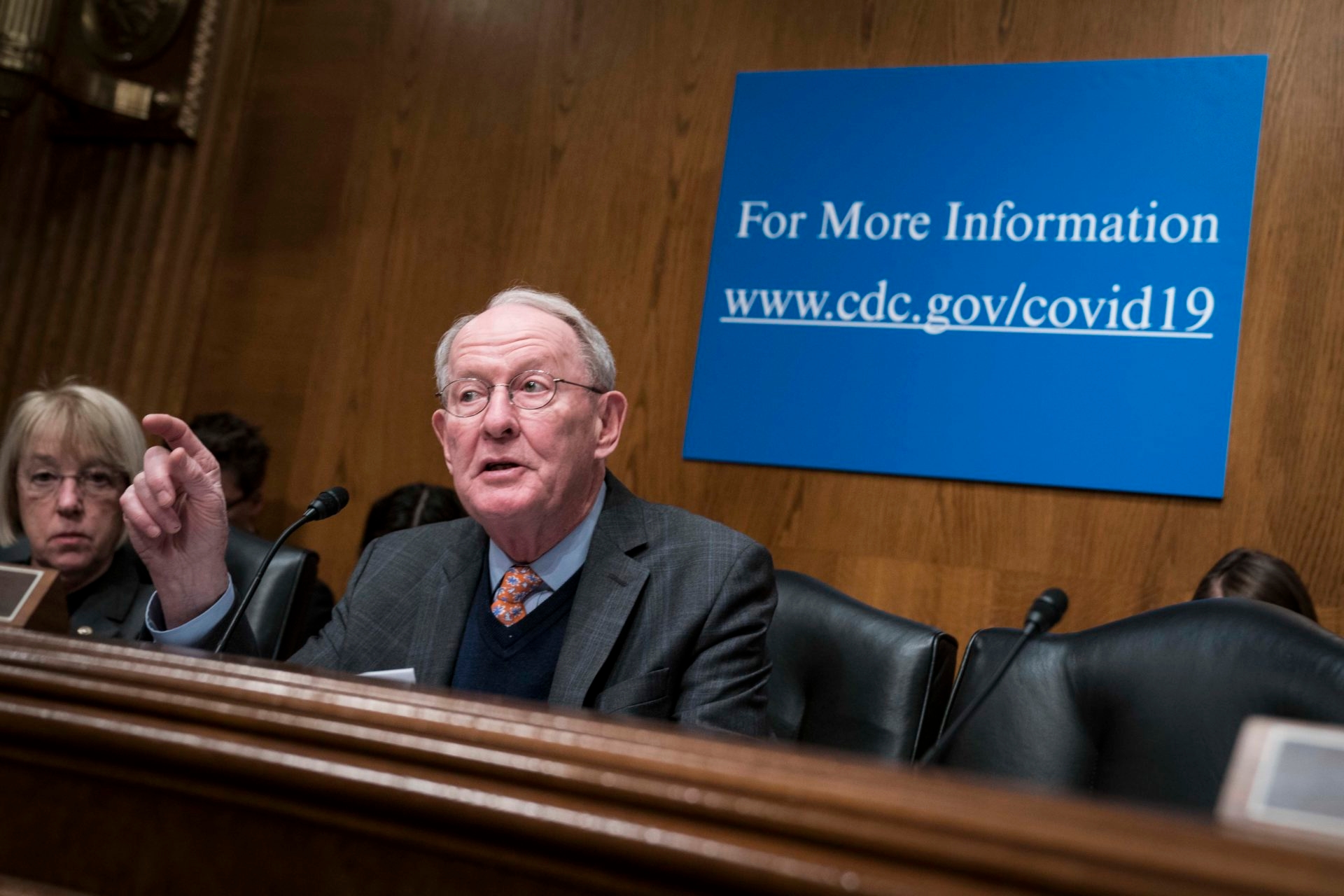Senators in Talks to Include Surprise Billing in Coronavirus Stimulus, Sources Say

A group of senators is in talks to include legislation that would end surprise billing, a long sought-after goal that has evaded Congress since the beginning of this session, in the Senate’s coronavirus $1 trillion economic stimulus package, according to three people familiar with the negotiations.
Senate Majority Leader Mitch McConnell (R-Ky.), who plans to keep the chamber in session until a "phase three" stimulus package has reached President Donald Trump’s desk, has appointed several task forces to discuss coronavirus legislation, which would significantly ramp up the U.S. response to the pandemic. As lawmakers rush to finalize provisions, a last-minute effort to include the surprise billing compromise hammered out by the Senate Health, Education, Labor and Pensions Committee is underway, according to three lobbyists who have long been engaged with the effort. That bill seeks to end surprise billing by paying providers based on median, in-network rates, with the option for both parties to go to arbitration for claims exceeding $750.
Trade groups representing doctors and hospitals have vehemently opposed what they call rate-setting, arguing that the arbitration backstop would be useless because the vast majority of claims would fail to reach the $750 threshold.
According to one person in close contact with the Senate HELP Committee, chaired by Sen. Lamar Alexander (R-Tenn.), the panel sees an opening in the coronavirus stimulus package to finally put the issue to bed. Strategically, lawmakers see this as an opportune moment to move on the issue, the person said — hospitals will get a significant amount of relief as part of this package, while implications of the surprise billing fix won’t bear out for years. Alexander has been appointed to the task force focused on health issues in the COVID-19 package.
Efforts to tackle surprise billing have intensified, but stalled repeatedly for several months in both chambers of Congress, as lawmakers on the House Education and Labor and Ways and Means committees have more recently introduced their own measures, the latter of which is viewed as more provider-friendly.
One person with knowledge of the effort expressed skepticism that the Alexander bill will make it into the package. The U.S. coronavirus response hinges on hospitals and emergency room doctors, who have come out in firm opposition to the Senate HELP and House Energy and Commerce committees' solution. House Speaker Nancy Pelosi (D-Calif.) is opposed to rushing this process, the person said.
According to a senior House Democratic aide, there are disagreements between the committees of jurisdiction over how to address surprise billing, and while leadership has been working to build consensus, that process hasn’t yet come to a resolution. Pelosi's office declined to comment.
In a statement, the Save Our Air Medical Resources Campaign said any attempt to attach the proposed surprise medical billing language to the emergency COVID-19 package is “misguided,” and that as the United States copes with the impact of the pandemic, “policymakers must remain focused on protecting access to emergency medical care – particularly for our most vulnerable populations – rather than impeding it.”
This story has been updated to include a statement from the Save Our Air Medical Resources Campaign.
This story was updated to reflect the response from House Speaker Nancy Pelosi’s office.
Yusra Murad previously worked at Morning Consult as a reporter covering health.